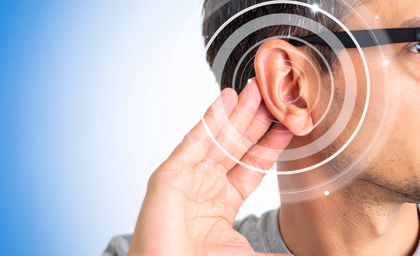Hearing loss, loneliness accelerates dementia risk in elderly: Study
By IANS | Updated: July 16, 2025 13:44 IST2025-07-16T13:39:07+5:302025-07-16T13:44:24+5:30
New Delhi, July 16 Hearing loss combined with the feelings of loneliness accelerates cognitive decline, leading to dementia ...

Hearing loss, loneliness accelerates dementia risk in elderly: Study
New Delhi, July 16 Hearing loss combined with the feelings of loneliness accelerates cognitive decline, leading to dementia in older adults, according to a study.
Researchers from the University of Geneva (UNIGE) in Switzerland showed that isolation, communication difficulties, reduced alertness, and hearing impairment or loss are a real challenge in daily life.
The findings, published in the journal Communications Psychology, showed that hearing loss accelerates cognitive decline, particularly among individuals who feel lonely, regardless of whether they are socially isolated.
‘‘We found that people who were not socially isolated but who felt lonely saw their cognitive decline accelerate when they were deaf,’’ said Matthias Kliegel, professor in the Cognitive Ageing Laboratory in UNIGE.
The team analysed data from 33,000 older adults across 12 countries in Europe to examine the combined impact of hearing loss and loneliness on memory.
They found three distinct profiles based on the degree of social isolation and perceived loneliness: individuals who are socially isolated and feel lonely; individuals who are not socially isolated but still feel lonely; and individuals who are socially isolated but do not feel lonely.
The study supports the importance of addressing both hearing loss and the social and emotional dimensions of individuals in efforts to prevent cognitive decline.
This is particularly crucial for people who are not socially isolated but still feel lonely -- in such cases, simple hearing interventions, like using a hearing aid, may be enough to help them engage more fully in social life, the researchers said.
“These individuals are already socially integrated, so it’s a matter of removing a sensory barrier in order to reinforce their engagement and protect their cognitive health,” said Charikleia Lampraki, postdoctoral researcher in the Lifespan Lab at UNIGE.
According to the World Health Organization (WHO), nearly 2.5 billion people will experience hearing loss or impairment by 2050.
More than 25 per cent of people over the age of 60 experience a disabling hearing impairment. In addition to the social challenges, this loss -- or reduction -- can increase the risk of cognitive decline by two to three times, said the team, stressing the need for early and preventive hearing care.
Disclaimer: This post has been auto-published from an agency feed without any modifications to the text and has not been reviewed by an editor
Open in app